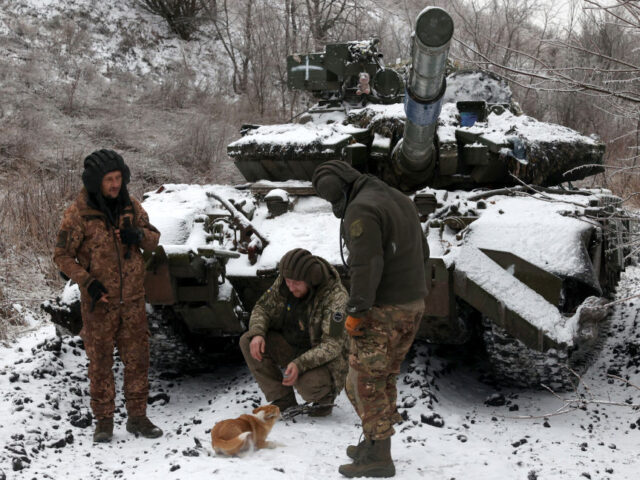If Putin isn’t stopped from occupying Ukraine he may just keep going and invade other countries, NATO warns as it states the high levels of spending on the conflict is an investment in the alliance’s own future security.
NATO Secretary General Jens Stoltenberg met with the newly elected Prime Minister of Slovakia Robert Fico on Thursday, and in comments that may have been meant to show up the anti-war statesman the alliance chief warned of the potential consequences of failing to underwrite Ukraine’s defence.
Stoltenberg explained his view that NATO nations funding Ukraine’s armed forces should be seen as an investment, rather than money simply lost in the churn of a now close-to-static conflict, saying: “If Putin wins in Ukraine, there is real risk that his aggression will not end there. Our support is not charity. It is an investment in our security”.
The only possible ” just and lasting solution” will be achieved by convincing Putin that military victory can’t be achieved, he said, but noted “the Kremlin is preparing for a long and grinding war”.
These warnings that unless Russia is soundly defeated in Ukraine it would be emboldened to try its hand at invading NATO member states next is similar in tone and content to warnings of the Ukrainians themselves, who frequently remind their Western partners that if the deliveries of weapons end, they could soon find themselves fighting Russians in their own cities. Ukrainian President Volodymyr Zelensky said this week that: “People in Europe won’t see any benefit if Moscow receives a pass from Brussels in the form of negativity towards Ukraine.
“Putin will surely use this against you personally, and against all of Europe. Don’t give him this first – and only – victory of the year.”
Earlier this year, Zelensky described how Ukrainian school children now attend classes in makeshift classrooms out of the reach of drones and missiles in the subway stations of Ukrainian cities. Inviting Western leaders to consider what this would mean for their own children, he had rhetorically asked whether European cities had enough underground railway stations to keep their pupils safe from falling bombs.
The remarks came as VLadimir Putin himself led a marathon press conference in Moscow, where he discussed a variety of issues facing Russia including Ukraine. The Russian President vowed there would be no peace in Ukraine until he’d succeeded in achieving his aims, saying “victory will be ours”.
Needling the lack of tangible progress in the Ukrainian war plan this year, including the much-vaunted counteroffensive with NATO-equipped and trained brigades, Putin told journalists: “The enemy has declared a big counteroffensive, but he hasn´t achieved anything anywhere… I believe it’s stupid and irresponsible on behalf of the country’s political leadership, but it’s their business”.
Stoltenberg’s remarks on the importance of NATO ‘investing’ in its own security by continuing to fund Ukraine while greeting the Slovakian President comes after widespread media attention on Fico’s remarks on the Ukraine war since he took back the leadership of the country in a national election earlier this year. Fico has ended his country’s military aid to Ukraine, saying additional equipment and funding can no longer help the nation.
Fico is also skeptical about letting Ukraine join NATO, a position he shares with Hungary’s Viktor Orban, but Slovakia continues to supply humanitarian aid to Ukraine. Fico had said in October: “I will support zero military aid to Ukraine … An immediate halt to military operations is the best solution we have for Ukraine… The EU should change from an arms supplier to a peacemaker”.
Yet despite the rift between Fico’s Slovakia and NATO on the right direction for Ukraine, Stoltenberg’s language was otherwise conciliatory, and the European Conservative notes the Alliance chief attempted to “bury the hatchet” with Fico on Thursday. He praised Slovakia for meeting its treaty pledges, which most NATO members do not, and short of a world war may never do.

COMMENTS
Please let us know if you're having issues with commenting.